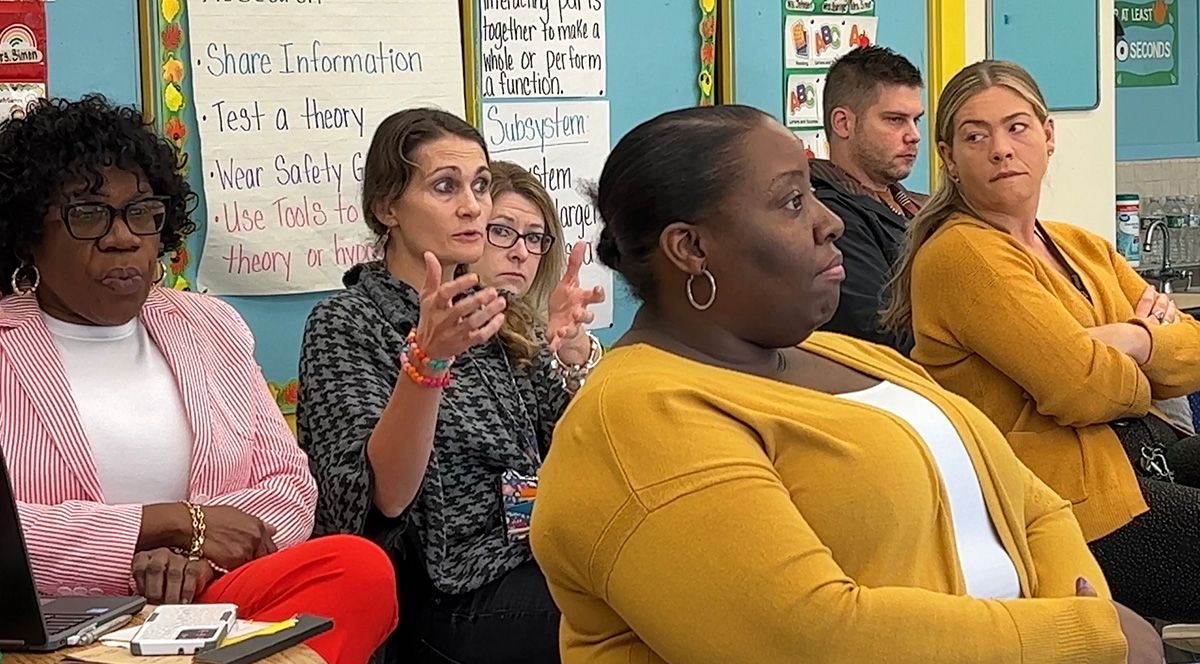Receivership
Giffen teachers describe ‘shame-and-blame’ receivership law

After a moving set of meetings with teachers at Giffen Memorial Elementary School in September, NYSUT President Melinda Person returned with State Education Department Commissioner Betty Rosa on Wednesday to hear from members and administrators about the impacts of the state’s punitive receivership law.
Person and Rosa spoke for about an hour with teachers who described the receivership label at Giffen as one that “makes a hard job harder.”
Giffen currently is the sole Albany district school operating under receivership in the state’s school accountability system due to test scores that have not met certain state standards.
Teachers and administrators said that the label perpetuates inaccurate perceptions about low-performing schools and the communities they serve. It deters parents from keeping their children within the public school system and teachers from joining Giffen staff.
Many students in Albany’s South End community are dealing with additional outside factors that influence classroom learning, teachers said, and those obstacles can’t be measured by the testing systems that determine receivership.
The hyper focus on achieving metrics to remove the receivership label means educators are unable to celebrate smaller improvements that are individually significant for students. And within school staff, there is “no oxygen or space” for non-receivership conversations about creative programs or initiatives to foster joy in teaching and learning, educators said.
Person told the teachers, administrators and Rosa that NYSUT is working on legislation that would repeal the current receivership law – and its harsh label – with the aim of finding another replacement system to better support meaningful and lasting improvement within schools and communities.
“The intent for receivership was to actually support schools and help them turn around, but instead has had all these other shame-and-blame consequences,” Person said.
“We obviously are not afraid of accountability, but we don’t think the current system is set up for our kids to succeed,” she said. “And telling a whole community ‘you’re failing,’ which is essentially [written in] these letters sent to parents – these pieces have an impact on a community.”






